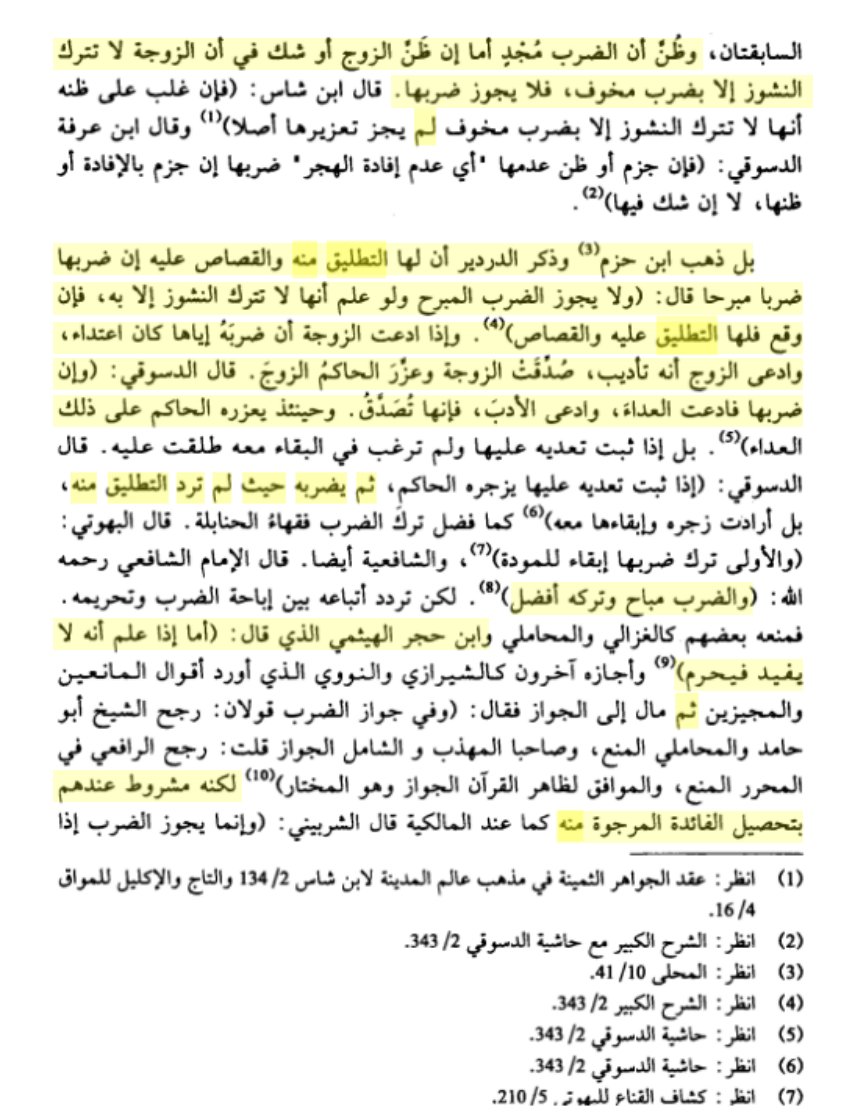Imam Al-Desouki:
And if proof for transgression is shown and the wife wants to remain with him, then the judge is to beat the husband.
Imam Al-Desouki:
If the husband believes that his wife will not stop rebelling except by beating, then he’s not allowed to beat her.
Ibn Hajar Al Haithami:
If a husband knows that beating isn't helpful, then it becomes haram.
Al-Shafi‘i:
Beating is allowed, but avoiding it is better.
Maliki opinion:
Beating is allowed ONLY if it delivers the benefit intended from it. If it doesn't, then it's haram.
Ibn Hazm:
A wife has the right to divorce herself and right to retribution (or retaliation) if her husband beats her violently.
He is not allowed to beat his wife violently even if he knows she won’t stop rebelling by no other means and...
...and if he does beat her violently then she has the right to divorce him and the right for retribution.
Imam Al-Desouqi:
If the judge has been shown proof that the husband harms his wife even 1ce, then the wife is given the right to choose whether to remain with him or divorce herself with one talaq because of the Hadith “There should be neither harming nor reciprocating harm.”
Imam Nawawi:
Violent beating isn't allowed even if the husband believes his wife won't stop rebelling otherwise.
And if he does that, then she is given the right to divorce him and Qisas (retribution) as well.
Aisha (RA):
The Prophet ﷺ never hit with his hand neither a servant nor a woman but of course, he did fight in the Cause of Allah. He never took revenge upon anyone for the wrong done to him, but of course, he exacted retribution for the sake of Allah...
https://t.co/yGdgwkqW6v
About wife beating, Ibn Hajar al-Haytami (Shafiʽi scholar, died 1566) said:
"But if it is known that it is not useful, then it is forbidden, because it is an indispensable punishment."
Reference:
Nihāyat al-muḥtāj ilá sharḥ al-Minhāj, Vol. 6 Page 391






